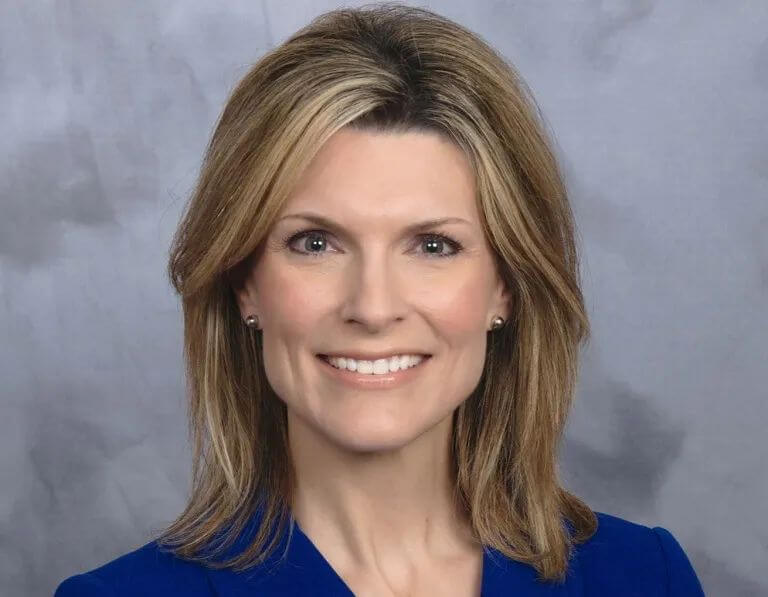12/4 Torchbearer Weekly Policy Update
Thank you letting us be your trusted source for local, state, and federal policy updates.
- Holcomb Taps Boone County Council President Nieshalla As State Comptroller
- Committee Provides Updates on Medicaid Programs For Aging, Maternal Health
- Putting An End to Social Promotion
- Unemployment Claims in Indiana Declined Last Week
- Senator Melton’s Transition
- Legislative Task Force Recommends Further Restrictions to State Agency Powers
- America’s Hidden Gig Workers
- Share the Torchbearer Newsletter with Your Network!
- Important Dates
Let’s dive in.
Holcomb Taps Boone County Council President Nieshalla As State Comptroller

Elise Nieshalla, a real estate investor and president of Boone County Council, has been named the next comptroller for the state of Indiana.
Why it matters: Nieshalla's appointment as comptroller is important because she brings financial expertise and a commitment to fiscal responsibility to the role.
The big picture: Nieshalla has a strong background in real estate investment and has served in various leadership roles in Indiana. Her appointment as comptroller reflects the state's focus on maintaining a strong financial standing.
What's next: Nieshalla was sworn in on December 1st, replacing Tera Klutz who is stepping down from the position. (Axios)
Committee Provides Updates on Medicaid Programs For Aging, Maternal Health

Starting in 2024, over 130,000 Hoosiers over 60 will receive notices to choose a Managed Care Entity (MCE) for their health coverage under the Pathways for Aging program.
Why it matters: The transition to managed care aims to improve coordination and coverage for long-term supports and services for elderly Hoosiers.
By the numbers: Medicare and Medicaid have different coverage areas, but over 80% of enrollees qualify for both programs.
The big picture: The program seeks to incentivize home- and community-based services over institutional care.
Yes, but: Some lawmakers express concerns about the rollout and potential impact on smaller entities providing services for older Hoosiers.
What they're saying: Rep. Ed Clere is concerned about the disparity between what he's hearing from the Area Agencies on Aging and the rollout plans.
What's next: Medicaid beneficiaries will need to choose between Anthem Blue Cross and Blue Shield, Humana Healthy Horizons, and United Healthcare Community Plan by April 2024. (Indiana Capital Chronicle)
Putting An End to Social Promotion

The latest proposal from Statehouse leaders to get more Hoosier kids reading could cost Indiana more than $100 million.
Driving the news: House Speaker Todd Huston, R-Fishers, said last week that House Republicans are considering legislation for the upcoming session that would hold back third graders who can't read on grade level.
Why it matters: Third grade is considered the point at which kids transition from learning how to read, to needing to be a proficient reader in order to learn more advanced skills.
State of play: One in five Hoosier third graders aren't reading on grade level.
Context: Lawmakers have been trying to solve the state's reading problem for more than a decade.
- In 2010, they passed legislation that created the IREAD-3 exam, which tests whether students are proficient in reading at the end of third grade. Last year, more than 14,000 kids didn't pass the IREAD-3.
- Those who don't pass are supposed to be held back to repeat third grade, save for a few narrow exceptions.
Yes, but: Lawmakers say those exceptions have widened over the years and too many students are being passed to fourth grade.
The latest: Huston said lawmakers would look at legislation to end that practice.
- He said the goal is not to retain students but to get them proficient and called on schools to focus on fundamental reading skills.
Between the lines: While promoting students who can't read can set them up for failure and frustration, studies also show that students who repeat a grade are at a higher risk of dropping out later.
By the numbers: On average, the state will spend about $8,200 per student next year.
- If all the students who don't pass the IREAD-3 are retained and spend an extra year in the public school system, it could cost the state nearly $120 million.
What they're saying: "We'll figure out the budget thing," Huston said. "But we are doing those kids a total disservice."
- "If it's going to cost us more money, we should pay more money." (Axios)
Unemployment Claims in Indiana Declined Last Week

New jobless claims in Indiana dropped last week compared to the previous week, according to the U.S. Department of Labor.
Why it matters: This decrease in unemployment claims indicates a potential improvement in the job market.
By the numbers: Initial filings for unemployment benefits in Indiana decreased from 3,806 to 3,420 in the week ending November 17.
The big picture: This decline in unemployment claims reflects a positive trend in the state's economy.
Yes, but: Kentucky experienced a significant increase in weekly claims, while Utah saw a notable decrease.
What's next: It will be important to monitor future unemployment claims to assess the overall health of the job market. (Courier & Press)
Senator Melton’s Transition

State Sen. Eddie Melton, D-Gary, will step down effective Dec. 5 as he prepares to become the next mayor of the city of Gary. Melton defeated incumbent Democrat Jerome Prince in the May primary and went on to beat Republican Andrew Delano in the general election. A caucus of Democratic Party precinct committee members will vote on Melton’s replacement at a later date. (IBJ)
Legislative Task Force Recommends Further Restrictions to State Agency Powers

A legislative task force approved recommendations that would further restrict the ability of state agencies to adopt rules and regulations.
Why it matters: The recommendations aim to create a separation of powers problem and potentially lead to a full-time legislature.
The big picture: The task force seeks to promote collaboration between state agencies and Indiana citizens.
Yes, but: Democrats disagree with recommendations that would limit state courts from deferring to agency decisions.
What's next: Further study is needed for three of the recommendations. (Lakeshore Public Media)
America’s Hidden Gig Workers

Millions of Americans are doing casual work while not counting as employed for the purposes of the government's official statistics, based on new research that sheds light on the true prevalence of informal gig work.
Why it matters: If more Americans are open to working than is implied by traditional economic data, the job market may be less tight than it seems — with more people open to opportunities for higher-paying, more stable work.
The details: The share of adults who are counted as employed would be higher by up to 5.1 percentage points (using generous estimates) if the people doing causal gig work properly reported doing so in the Current Population Survey, on which the jobless rate is based.
- That's from a paper by Anat Bracha of Hebrew University Business School and Mary A. Burke of the Federal Reserve Bank of Bost0n, presented earlier this month at a conference.
- Using more conservative estimates, the employment-to-population ratio would have been 0.25 to 1.1 percentage point higher from 2015 to 2022.
State of play: Uncounted gig workers are disproportionately older, more likely to be disabled and less likely to be doing casual work as a primary source of income, the authors found.
Yes, but: Bracha and Burke took a novel approach to probing just how many of the people who say they aren't working in that survey actually are not.
- Using a separate survey, the New York Fed's Survey of Consumer Expectations, they first ask the same questions as the CPS to identify people who would be classified as either unemployed or out of the labor force in the official statistics.
- They then asked those people about specific paid activities they may have undertaken — house cleaning, driving for Uber and so on.
- Those answers revealed uncounted Americans who are earning money in exchange for work but do not answer as such when first asked.
What they're saying: "There are reasons for thinking about gig work differently with respect to labor market slack," Bracha and Burke write, "because it points to a hidden labor supply that could be tapped by traditional employers."
The bottom line: The uncounted gig workers may be an untapped source of new labor supply, as their side jobs indicate some desire to earn more money. (Axios)
Share the Torchbearer Newsletter with Your Network!

Not signed up for our weekly newsletter? Sign up today!
Important Dates:

Tuesday, December 12th - Bill Request Deadline for Senate @ 4:30pm
Tuesday, December 12th - Bill Request Deadline for House @ 5pm
Thursday, January 4th - Unlimited Bill Filing Ends in the Senate
Friday, January 5th - Two Per Day Bill Filing Begins in the Senate
Monday, January 8th - First Day of the 2024 Legislative Session
Tuesday, January 9th - Senate Bill Filing Deadline
Tuesday, January 9th - State of the State @ 7pm
Wednesday, January 10th - State of the Judiciary @ 2pm
Thursday, January 11th - House Bill Filing Deadline
Tuesday, January 16th - Senate Deadline to Assign Bills to Committee
Tuesday, January 16th - Statements of Economic Interest Due in House and Senate
Tuesday, January 30th - House Committee Report Deadline
Thursday, February 1st - House 2nd Reading Deadline
Thursday, February 1st - Senate Committee Report Deadline
Monday, February 5th - House 3rd Reading Deadline
Monday, February 5th - Senate 2nd Reading Deadline
Tuesday, February 6th - Senate 3rd Reading Deadline
Tuesday, February 27th - House Committee Report Deadline
Thursday, February 29th - House 2nd Reading Deadline
Thursday, February 29th - Senate Committee Report Deadline
Monday, March 4th - House 3rd Reading Deadline
Monday, March 4th - Senate 2nd Reading Deadline
Tuesday, March 5th - Senate 3rd Reading Deadline
Thursday, March 14 - Last Day to Adjourn Sine Die
